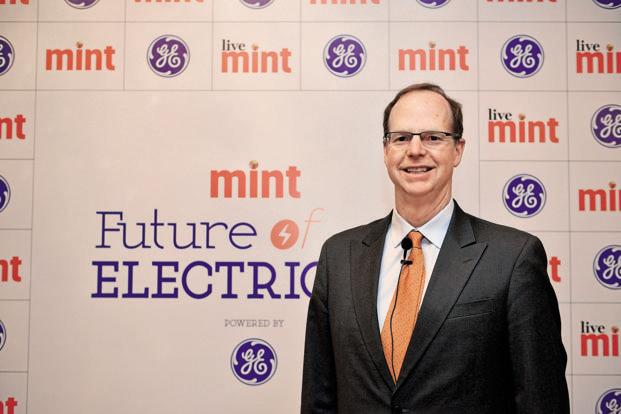New Delhi: India will turn a global player in the energy market during the next 25 years, exerting its influence on its various aspects, including renewable energy and energy efficiency, International Energy Agency’s (IEA) deputy executive director Paul Simons said.
“IEA sees India as the global player for the next 25 years in energy. They will have impact on everything that is done whether it is oil, gas renewables or energy efficiency. What is done here in India affects the global environment,” said Simons at the Future of Electricity conference organized by Mint and General Electric Co. on Tuesday. “Renewables and high-efficiency technologies will be critical to success. There is a tremendous amount of entrepreneurial talent in this country as well as abroad in partnerships. That will need to be harvested,” he added.
Simons also said that looking at the magnitude of energy expansion required, India’s relations with its bilateral and multilateral partners will be extremely important.

As per IEA’s India energy outlook, energy use in the country has almost doubled since 2000, but per capita consumption is still only around a third of the global average and some 240 million people have no access to electricity.
Prime Minister Narendra Modi-led National Democratic Alliance (NDA) government has set a target of “24×7 Power for All” and set a renewable power target of 175 GW by 2022. Still, coal is expected to remain the backbone of India’s power sector and is expected to witness huge growth.
However, the massive expansion of energy supply comes with its challenges as well. “Our estimates suggest that the total amount over the 25-year period could be as high as $2.8 trillion with an additional $800 billion in energy efficiency investment. That’s a rather massive number. And as India looks to harness new technologies, brings in new sources of finances and find smarter new innovative ways to bring energy services to its people it will be a huge challenge to bring this investment in India. Probably the single largest challenge,” said Simons.
He stressed that it will require consistent and coordinated efforts form national, local levels of administration, continued efforts to simplify business environment and provide other kinds of incentives. “We think that opening up of new long term low-cost financing options will be important. The magnitude of investment challenge—it is enormous. But clearly, this country has done tremendous things over the past decade and will find the ways to bring in the capital required,” he added.
The IEA executive director further said India has been playing a leading role in driving down costs of technologies like solar, LEDs and wind.